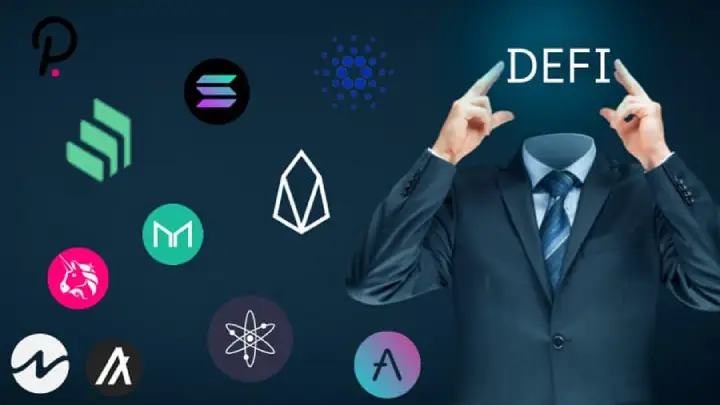Tokens related to decentralized finance (DeFi) are now worth $114 billion on the market. This is a very small part of the cryptocurrency market, which is worth $1.7 trillion right now as a whole. Even so, it has become one of the industries that are growing the fastest. On the other hand, according to Bitcoin Loophole, the number of people interested in and trading Bitcoin is constantly growing and it is getting to the point where we see mainstream adaptation and regulation.
Table of Contents
What exactly are “governance tokens”?
Most DEFI tokens are linked to DEFI protocols, which are sometimes almost entirely run by the community of DEFI protocol users. If people who use these kinds of DeFi platforms want to have a say in how decisions are made in the future, they will have to buy and keep “governance tokens.”
People who own these tokens have special rights and can vote on how the platform should change. The programming team is supposed to follow the results of these votes, which are often used as a proxy for how confident someone is in the project.
Users with more of a certain governance token can vote more than users with less of the token. This is done because it is thought that people who are willing to spend more on a project are more likely to want it to succeed and will vote for the ideas that are most likely to help make that happen.
Since the Uniswap airdrop, many other protocols have also used an airdrop to give governance tokens to early adopters in order to get them to vote. You can also earn governance tokens by actively helping protocols, like by adding liquidity to the asset pools of a protocol. This is another way to get governance tokens.
Do you know where to get DeFi tokens for the first time?
Even though it might seem like DeFi tokens and tokens that can only be bought on DeFi protocols are the same thing, this is not the case at all. Most centralized cryptocurrency exchanges, like Coinbase (COIN), Binance, and FTX, list the most important tokens from decentralized exchanges. They can be bought, sold, and put money into just like any other cryptocurrency.
To take part in the governance of a protocol, you will need to store the tokens in a DeFi wallet and connect the wallet to the governance platform that the protocol uses, such as Snapshot. You won’t be able to join in until then. It’s important to say that just because you’re in charge, you don’t have to pay for gas.
What kinds of risks do you take when you use DeFi tokens?
No matter where you buy DeFi tokens on coinbase or other exchanges you’ll still be exposed to the risks that come with the protocols that those tokens represent.
If the underlying protocol has a serious flaw that makes it easy to attack, DeFi tokens could lose a lot of money. In October 2021, a hacker found a mistake in the code and used it to steal millions of dollars from the bank account of the Compound lending protocol. Because of this, the price of COMP, which is the protocol’s governance token, went down very quickly.
Here is a list of the three most important DeFi projects that will be released this year and will have a big impact on the industry as a result.
The Golden Finch (GFI)
GoldFinch (GFI) was made so that poor countries could borrow money without having to put up collateral. Users can get loans without collateral that is backed by cryptocurrencies. The goal of the DeFi initiative is to get rid of restrictions that make it hard for people in underserved areas to get crypto financing.
People say that the website has numbers that show that more than 200,000 people have already used the loans it offers. GoldFinch’s marketing is aimed at the people in developing countries who need credit the most. It is one of those projects that fill a real need and has a good chance of growing even more by 2022.
Trader Joe’s. (JOE)
The decentralized cryptocurrency exchange Trader Joe (JOE) uses the Avalanche network. It’s a very easy deal. It is also the main DEX for Avalanche. It was made to make it easier for people from all over the world to trade cryptocurrencies with each other. At Trader Joe’s, customers can earn points toward rewards through liquidity and yield farming pools. It stands out because trades happen quickly, arbitrage doesn’t cost much, and it’s safe.
Convex Finance (CRV)
If you want a reliable liquidity aggregator that will help you stake and earn rewards, Convex Finance (CRV) is the best choice. It is a well-known decentralized financial plan, and its market value is between $1.5 billion and $2 billion. But there is still a lot of room for growth, and it’s likely that CRV will go much further.

